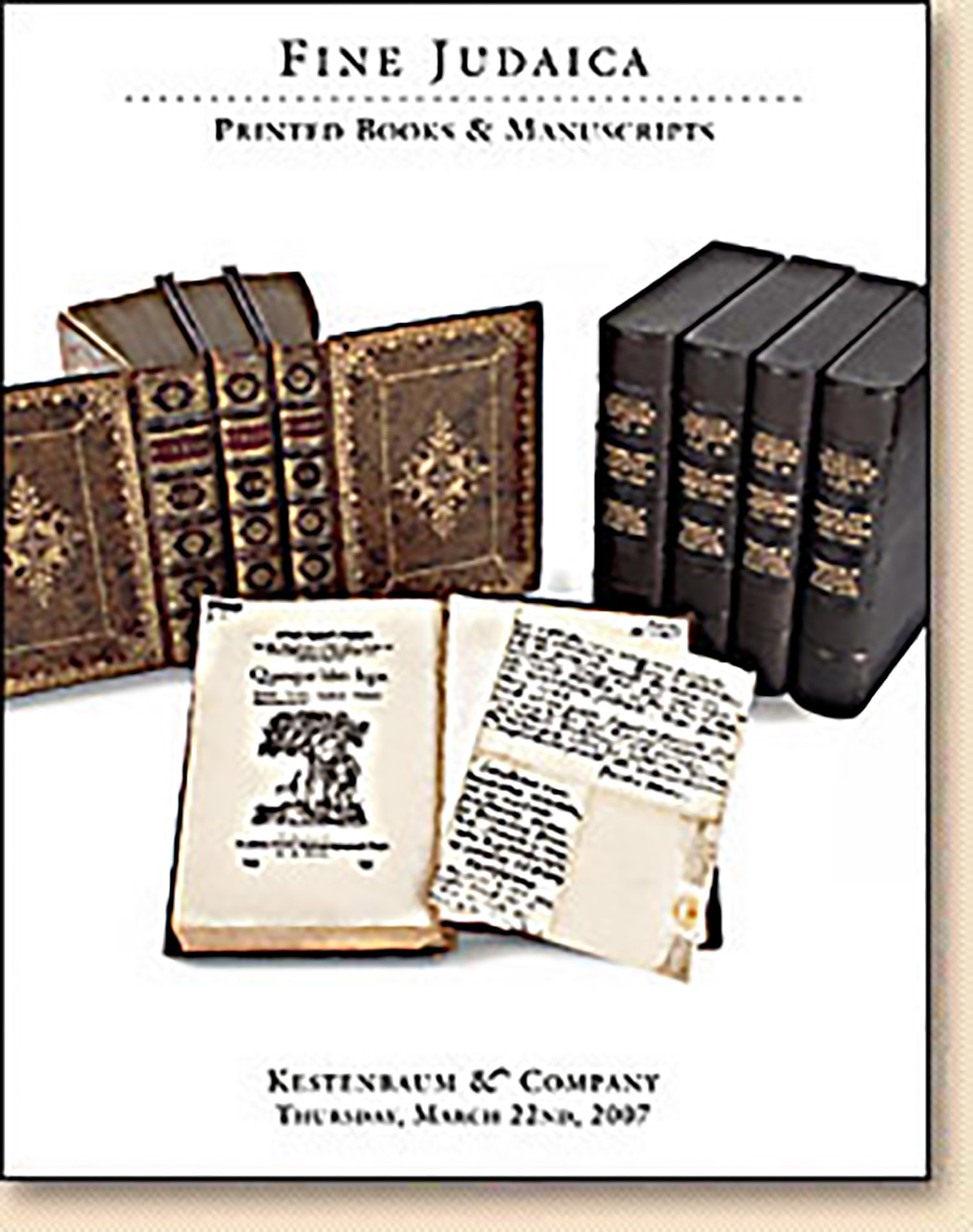(Liturgy). Minhag America - The Daily Prayer for American Israelites as Revised in Conference. With: Select Payers for Various Occasions In Life. Edited by Isaac Mayer Wise

AUCTION 36 |
Thursday, March 22nd,
2007 at 1:00
Fine Judaica: Printed Books & Manuscripts
Lot 9
(AMERICAN JUDAICA).
(Liturgy). Minhag America - The Daily Prayer for American Israelites as Revised in Conference. With: Select Payers for Various Occasions In Life. Edited by Isaac Mayer Wise
Cincinnati : Bloch & Company 1872
Est: $1,000 - $1,500
PRICE REALIZED $1,400
The first Reform Prayer-book printed in America.
Isaac Mayer Wise was born in Steingrub, Bohemia, in 1819 and immigrated to America in 1846. At first a rabbi in Albany, in 1854 he moved to Cincinnati. There he established the institutional structure of American Reform Judaism: the Union of American Hebrew Congregations and Hebrew Union College.
Wise, who desired to publish an “American” prayer book from his earliest years in the country, believed that the acceptance by all American Jews of a single liturgical rite would represent a great step toward unity. This first Reform prayer-book retained a Hebrew text and the traditional framework of the liturgy, though certain “objectionable” passages were altered, shortened or excised.
The changes Wise made to the traditional prayers are indicative of his mindset: In the Shemoneh Esreh, instead of “mechayeh ha-methim” [Who revives the dead], we read “mechayeh nishmoth ha-methim” [“who keepest alive the souls of dying mortals”] (pp.40-41). The notion of “techiyath ha-methim” (Resurrection of the Dead) offended Reform sensibilities. Likewise, in “Atah Chonantanu,” the prayer recited at the conclusion of the Sabbath, the distinction “between Israel and the Nations” was deleted (bot. pp. 42-3). Clearly, Jewish particularism was sacrificed for the regnant universalism. By the same token, one could no longer utter the prayer “Go’el Yisrael” (Redeemer of Israel). Instead, we are instructed to say, “Go’el ha-ashukim” [redeemer of the oppressed] (ibid.). Most radical is the erasure of all references to the Return to Zion and the reinstitution of the Temple Cult (pp. 47-48). Instead of the conclusion, “Ha-Machzir shechinatho le-Tziyon” [Who returns His Divine Presence to Zion], Wise substituted the conclusion normally recited on Festivals before the Priestly Benediction, “She-othecha levadecha be-yir’ah na’avod,“ which he translated, “to whom alone we render worship in veneration.”
- Little wonder Orthodox ire was aroused by this thorough revision to the prayers
